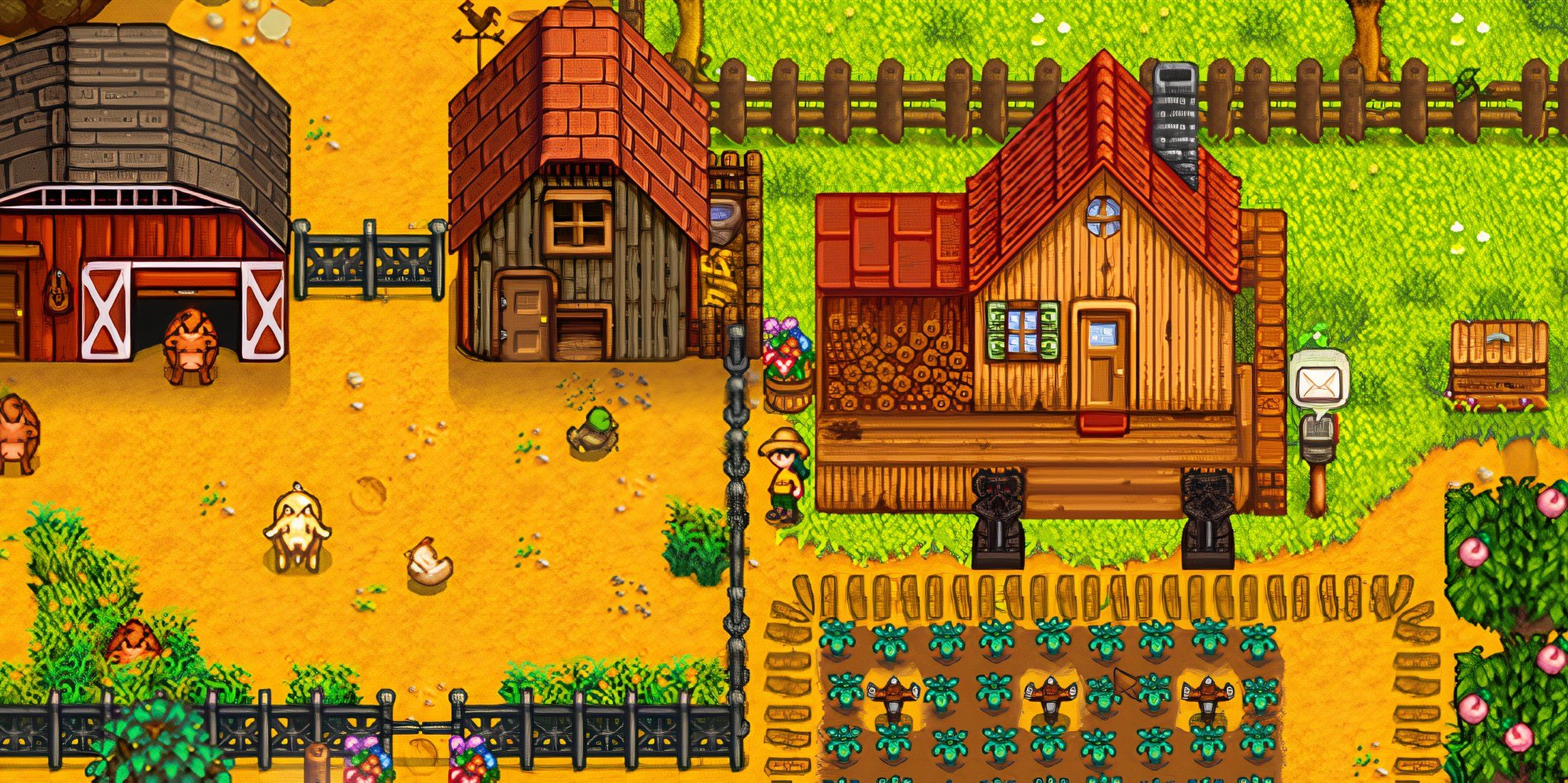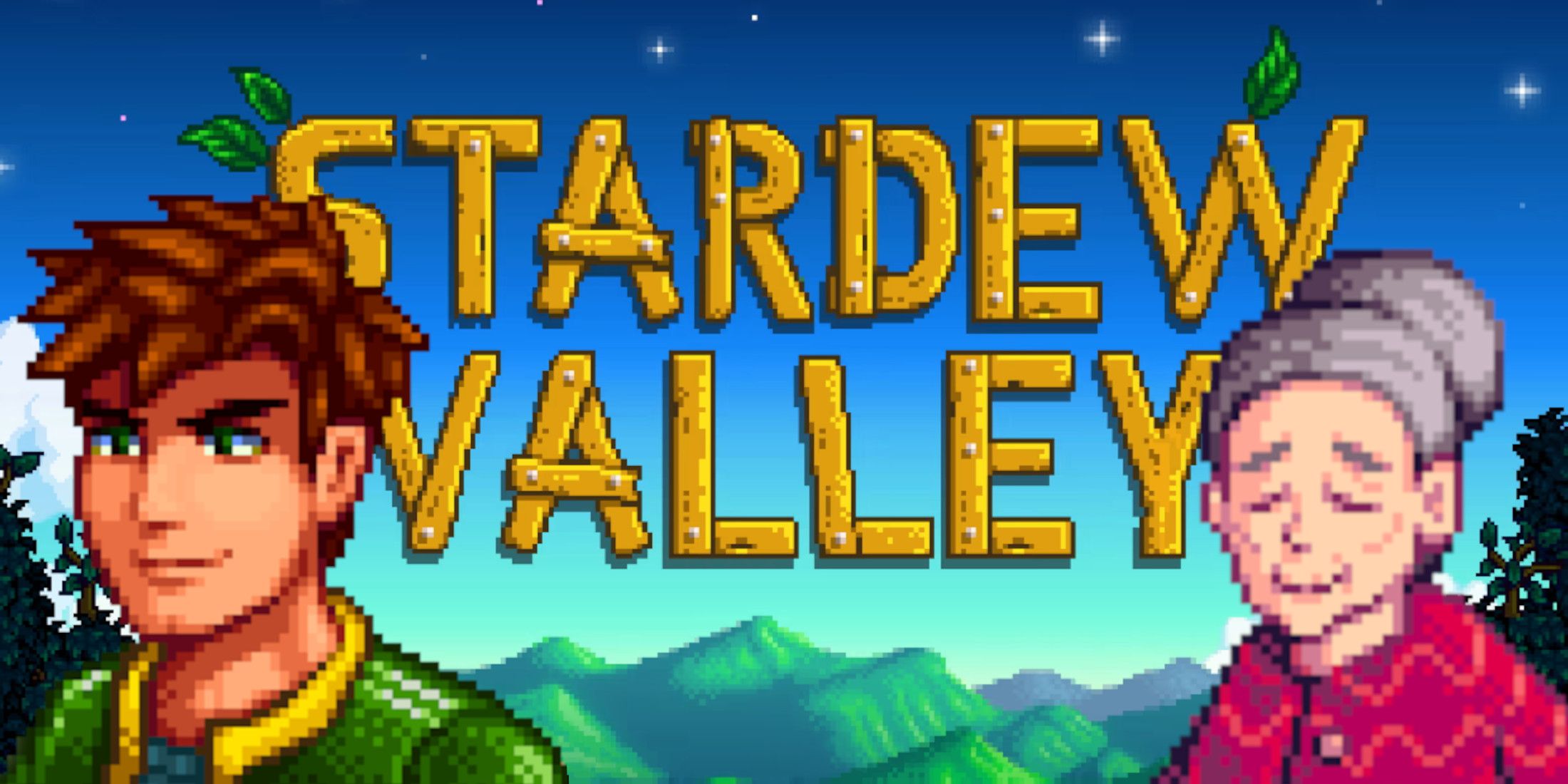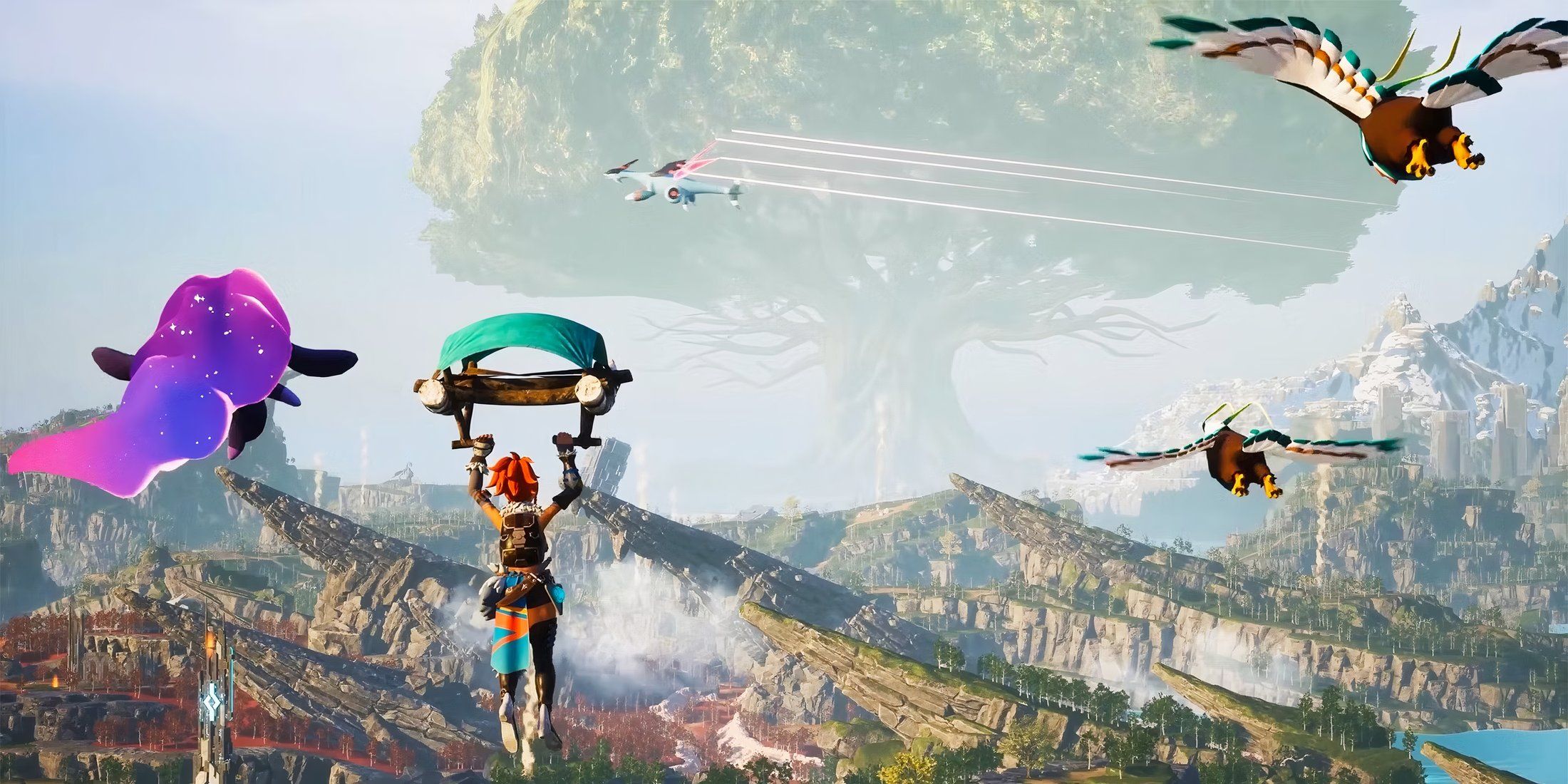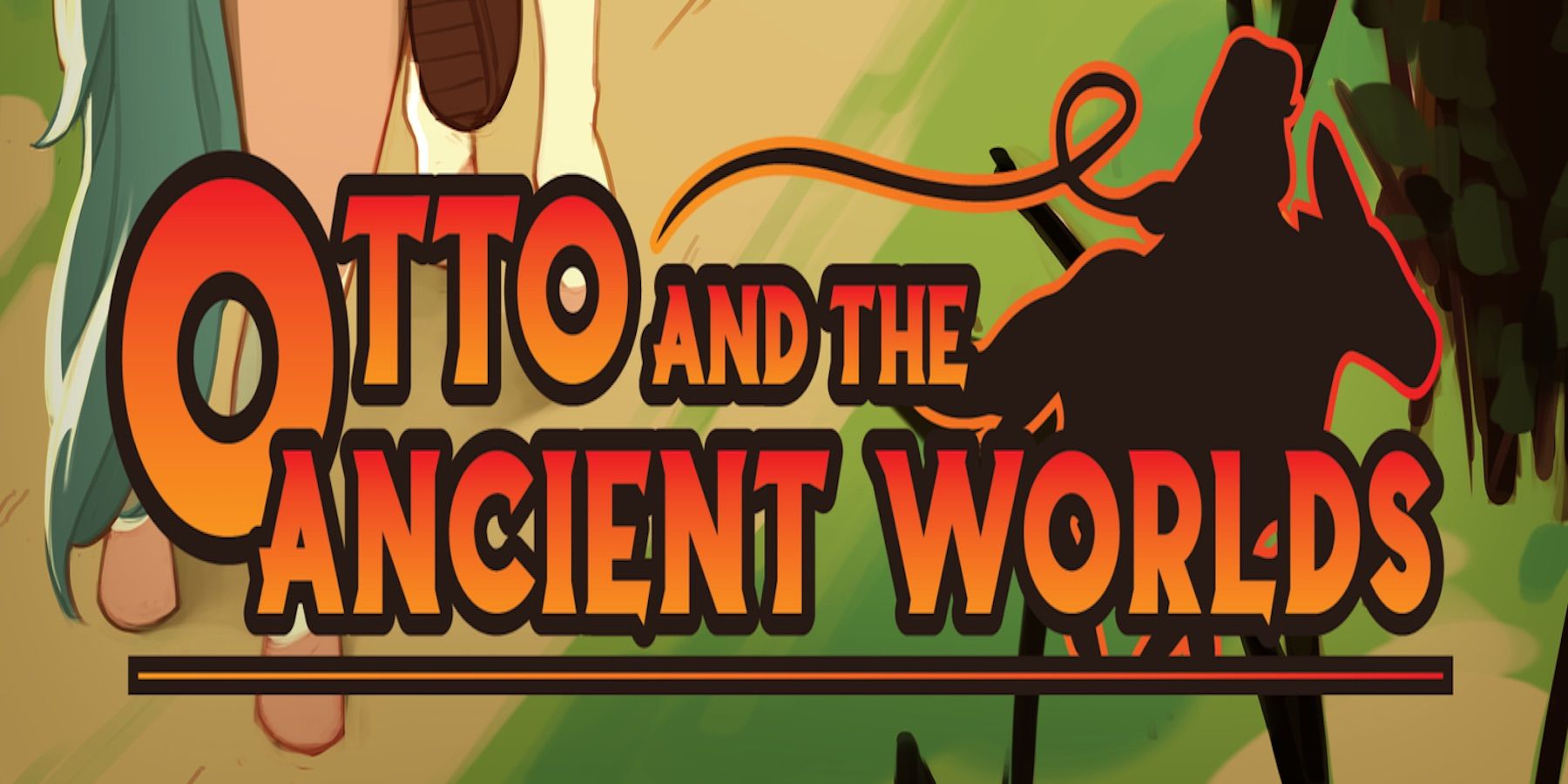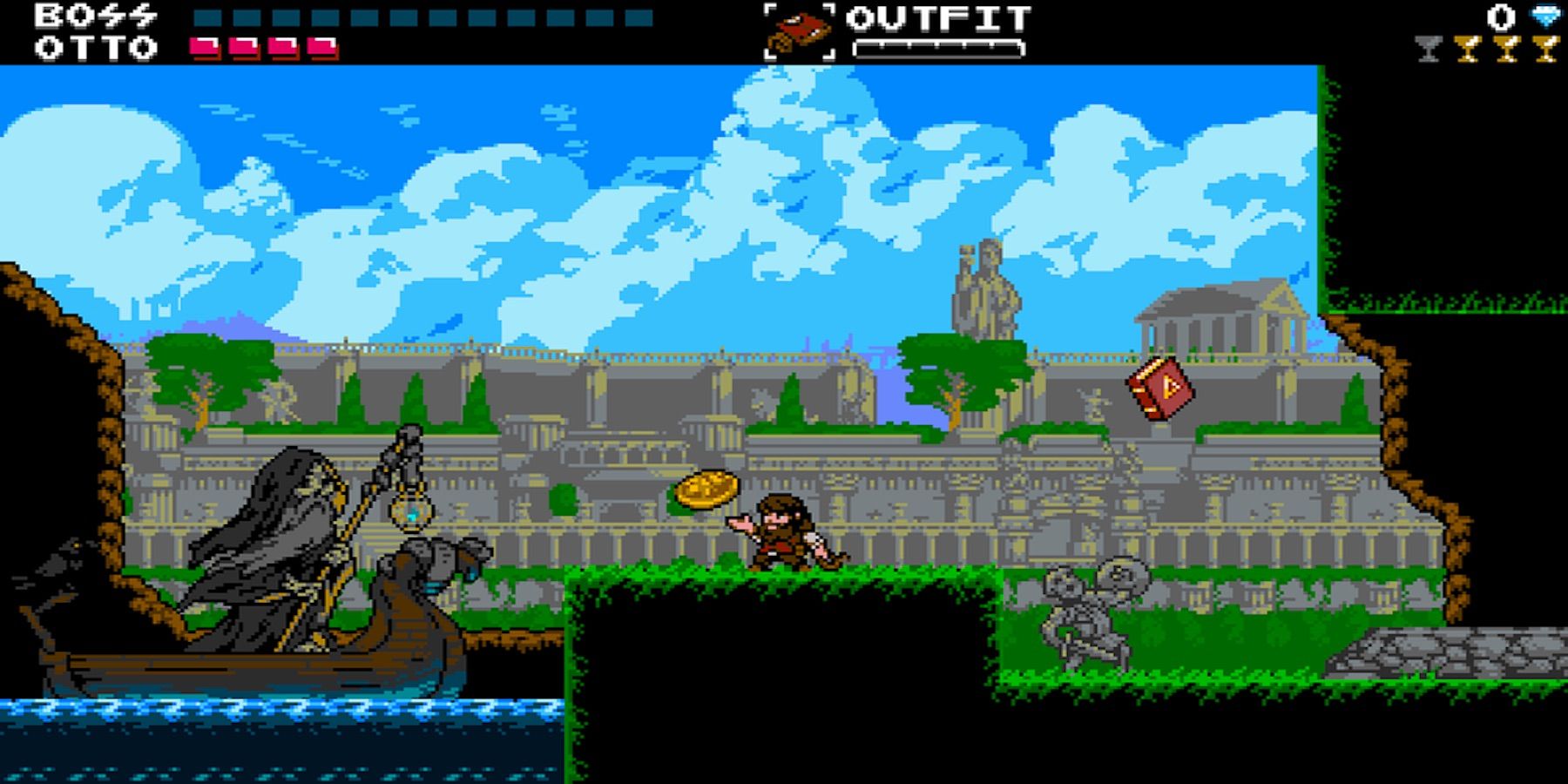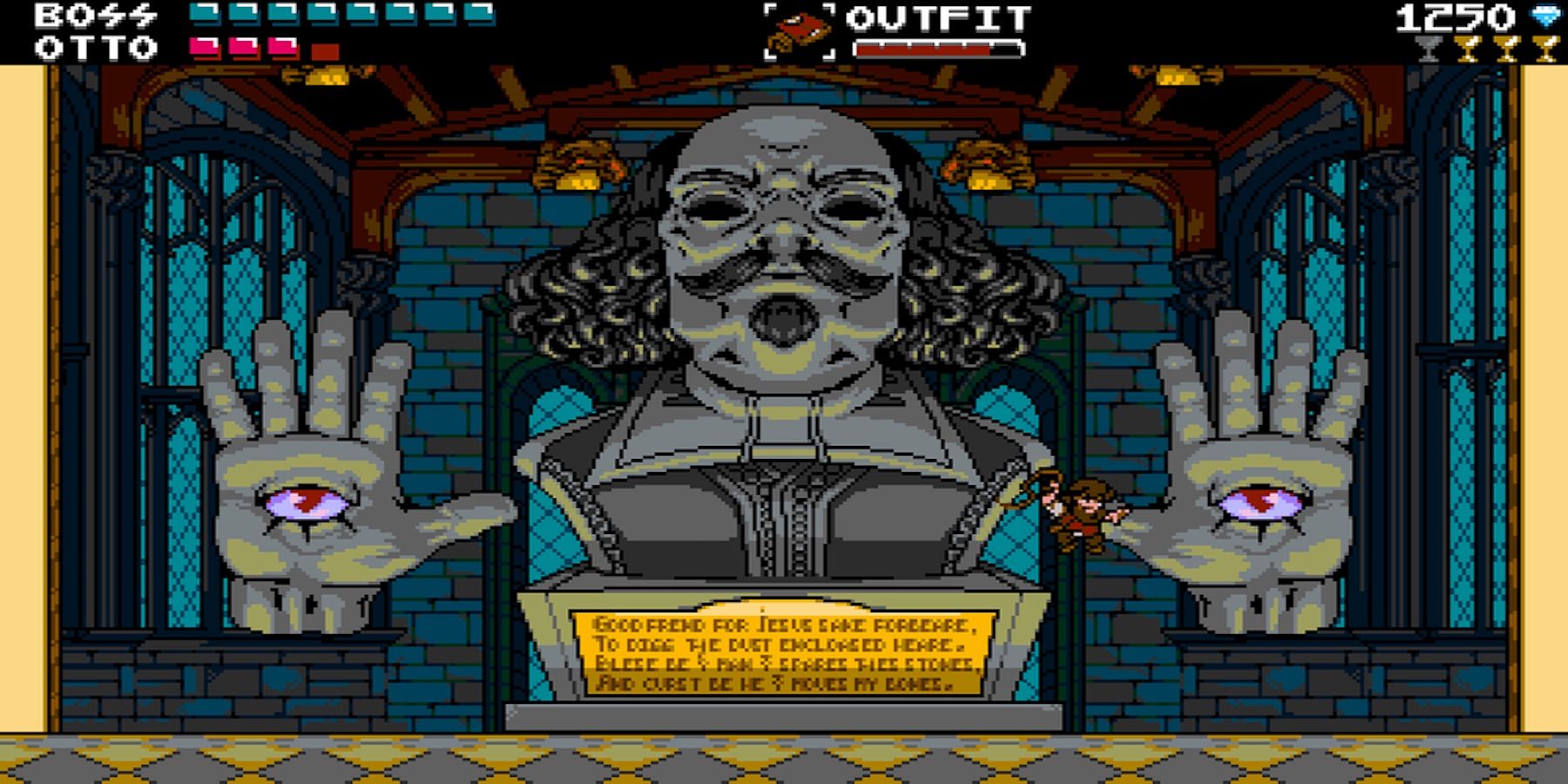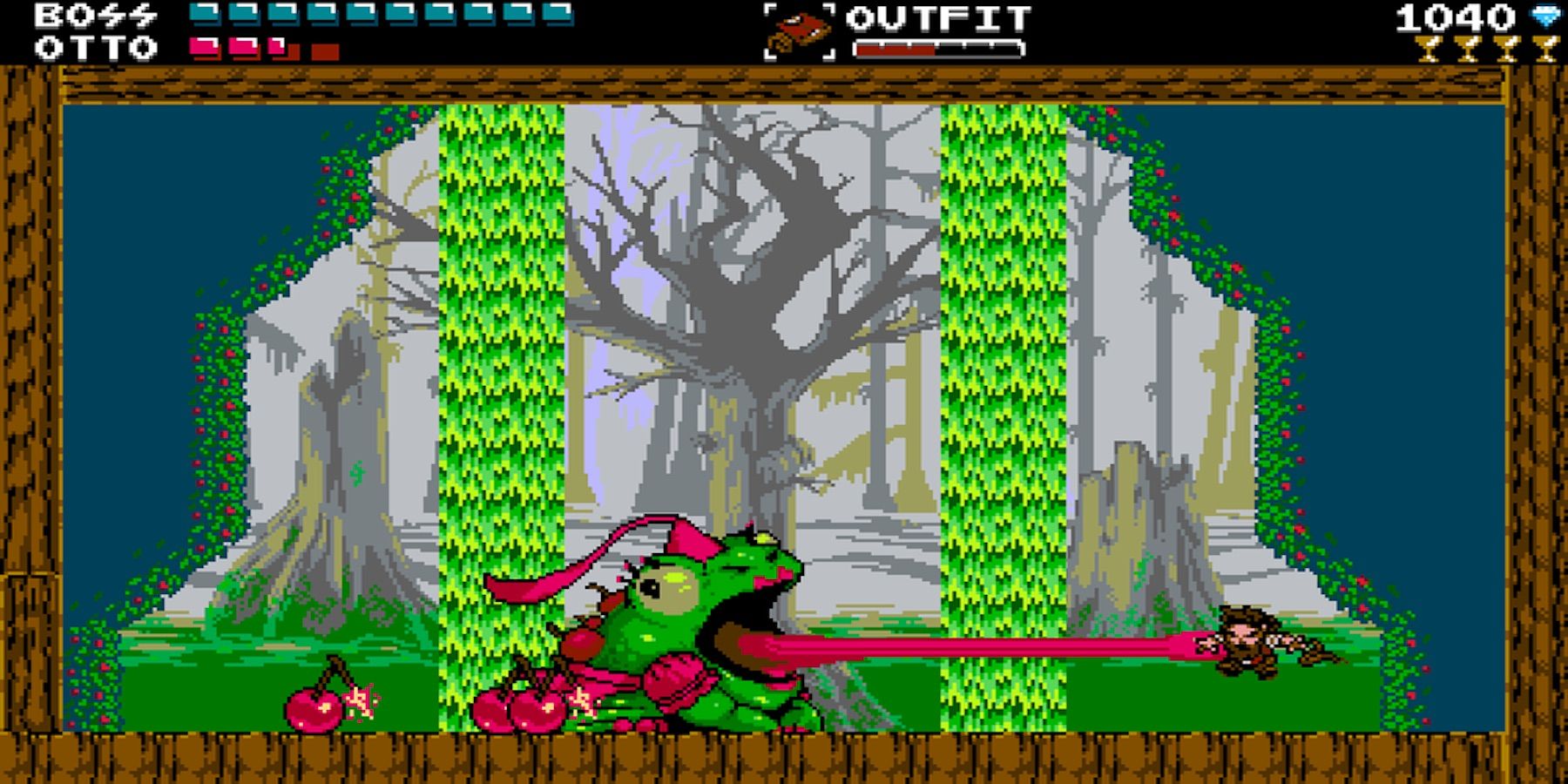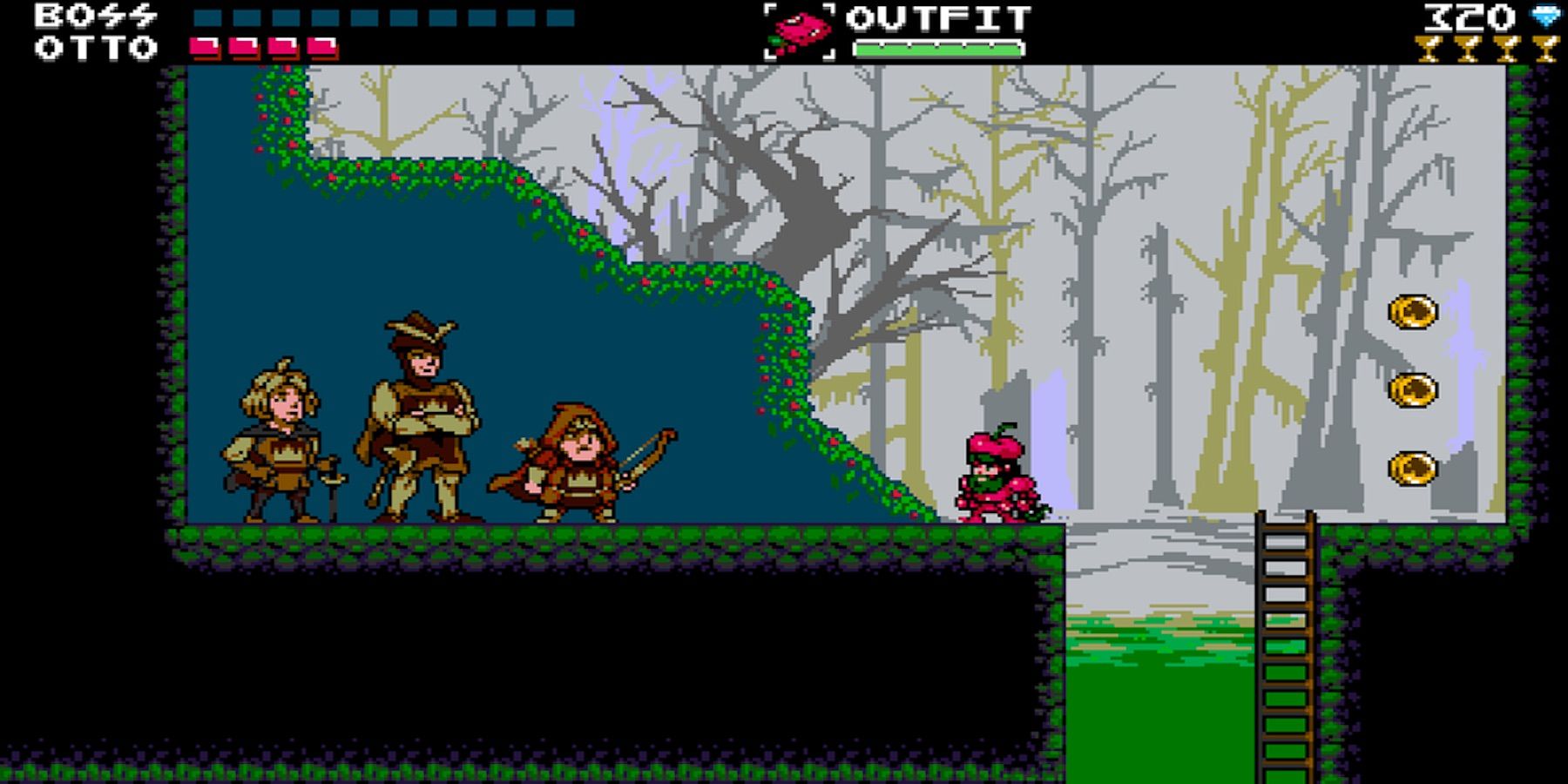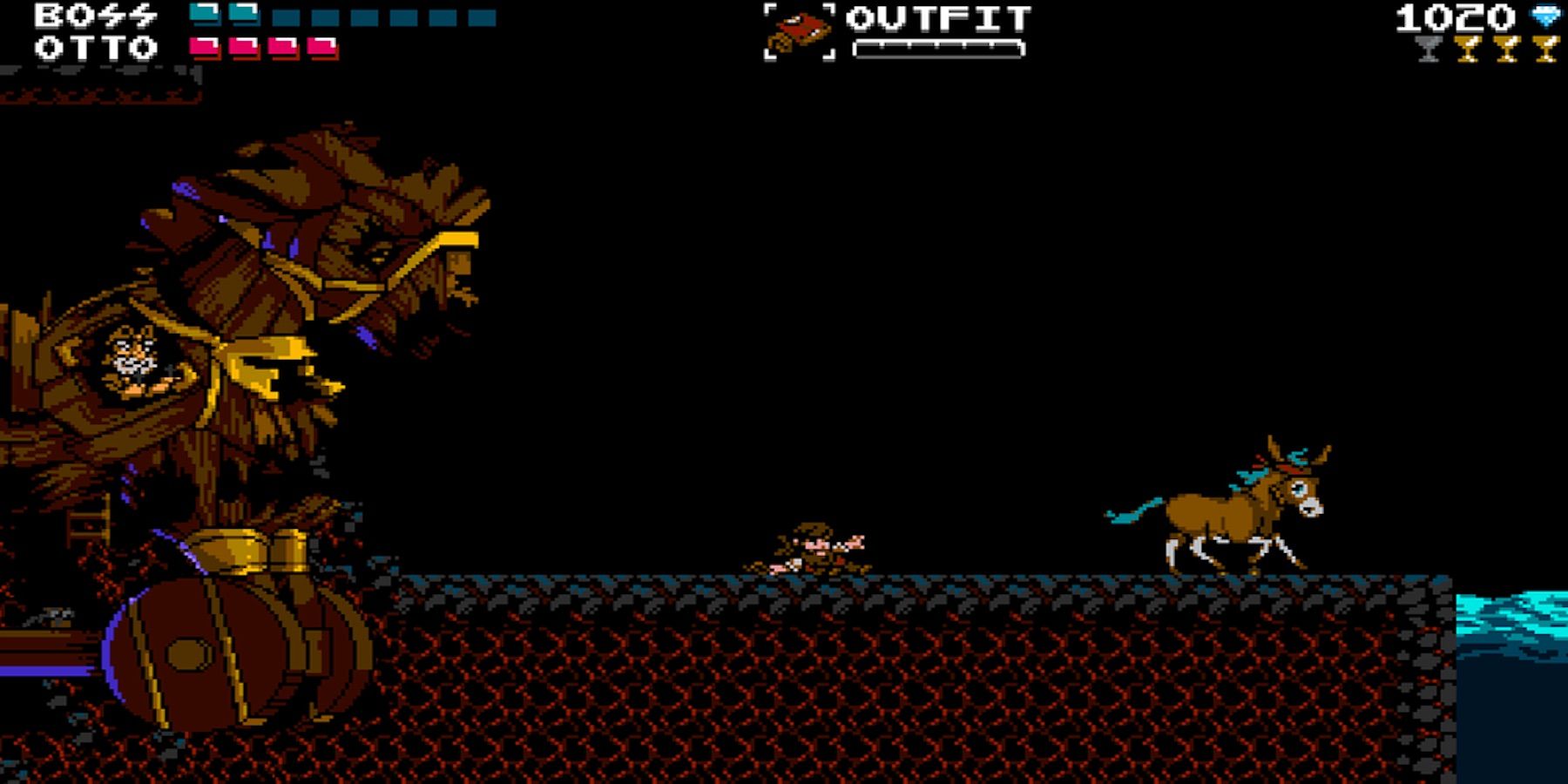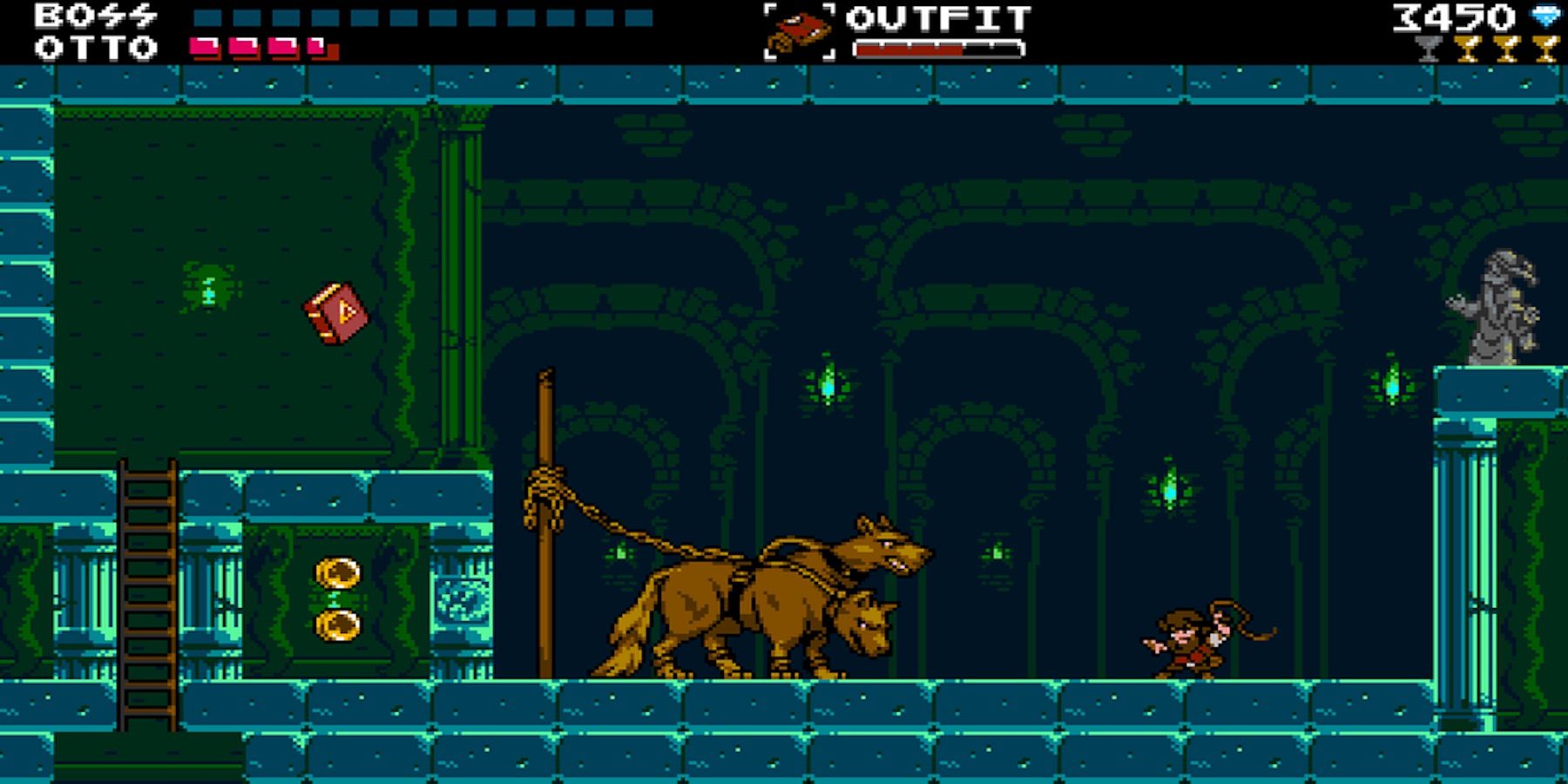In the opinion of Jordan Marx, programming lead at indie studio Obvious Gravity, developing a video game has never been easier. The accessibility of game engine software and game design tutorials allowed Marx and his team — who had little to no experience in the industry — to put together their first contribution to the field of indie games: eight-bit adventure platformer Otto and the Ancient Worlds.
Six years on, Marx said he has become a consummate professional game dev, thanks in large part to all he and Obvious Gravity learned throughout Otto’s development process. Game ZXC sat down with Marx to talk about his team’s journey and how their first title evolved throughout. Transcript has been edited for clarity and brevity.
Q: Would you mind telling me a bit about yourself and how you got started as a game dev?
A: I’m Jordan [Marx]. I’m the lead designer and only programmer working on Otto and the Ancient Worlds. But, this space is like a side job for us at Obvious Gravity. We all have day jobs.
Obvious Gravity kind of started as a hobby around six years ago, believe it or not. My wife, Oxcoxa, and I wanted to make video games, and we just threw ourselves into the Unity engine. We just played around with anything, imitating Donkey Kong stages, Super Metroid, things like that. We took sprites that were available on the internet and learned how to program with them.
We started brainstorming with our friends, and Otto took shape. Since then, the studio and Otto have very much evolved. We got to the point where we redid the game entirely, completely changing the game engine, and the story, and things like that. It became this really different game.
Q: Do you have any sort of programming background, or were you completely self-taught?
A: My background is in physics, so I did a little bit of programming, but I am basically self-taught. I think I took two programming classes. Getting that initial start sent me down a road where I could teach myself. Maybe if I didn’t have that help, it would have been much harder. I also had a lot of friends who know how to program and make games, so I also just bugged them. I should also mention that our pixel art was done by Nick Wozniak, who is the pixel artist for Yacht Club Games.
Q: Tell me a bit about Otto and the Ancient Worlds. What can players expect from the game?
A: It’s a platformer that uses eight-bit graphics, but sort of through rose-tinted lenses. You play as an archeologist named Otto who finds these magical books that contain worlds that spill out into the real one. You as the player have to figure out how to put those worlds back in.
Each stage in the game is based off of some mythology, legend, or folklore. They range from a Grimm Brothers fairytale to an Irish dwarf magician of legend.
Q: The history and fantasy references were something I noticed after an initial look at Otto. Are you all history buffs over at Obvious Gravity?
A: We had to do extensive research for the game. We read a lot of stuff on the internet and in books while we were choosing what each stage was going to be. For example, we wanted one level to be based on Shakespeare’s works, so we spent a lot of time reading his plays and learning all about the characters.
It kind of turned into something where players can actually learn a lot about the mythology of each stage in Otto. That’s something we didn’t plan on, but it became a big part of the game.
Q: Interesting. It sounds like, via some unintended consequences, you made a game that could end up being a learning experience for some players. How does that reveal itself in the gameplay?
A: The way we incorporate learning the lore of each stage into the game is through these hidden NPCs in each level. They’re optional, you don’t need to find them, but if you do they will tell you a bit more about the lore of each stage.
As an example, one of the stages you play through deals with the Norse myth of Fenrir, a giant wolf that is kept chained up with a sword in his mouth. As you’re playing through that stage you might find an NPC who will tell you about Fenrir, and to be careful. You’ll also interact with the Norse god Tyr, who had his hand bit off by Fenrir. He’ll tell you a bit more about how he lost his hand.
There are also hub worlds where you select the stage you want to play. At first, the hub is dirty and messy, but as you find each NPC they travel back to the hub and clean the area. They’ll also hang things up that are associated with each stage and its lore.
Q: So there are lots of educational opportunities in Otto. And that was totally unintentional?
A: Right. It wasn’t intentional, but it kind of evolved. It’s kind of random, but when I was a kid I played this PlayStation game called Brave Fencer Musashi. In that game, you collect NPCs who teach you a bit about the game world. We grabbed a bit from that game, but we weren’t totally sure what the NPCs should say, so we decided to make them tell you about the lore of each stage.
Q: Otherwise, what are some of the game’s main mechanics?
A: So, your main weapon is a whip, but the other big thing is that each stage has this unique outfit that gives the player different powers. Sort of like Mega Man, where his outfits gave him different types of attacks.
The way it works in Otto, each level has a hidden outfit that you can find that’s associated with the stage. So, the Grimm Brothers level is all about this frog princess, and it’s very cherry heavy. If the player finds the cherry knight outfit in that stage, they get the ability to launch cherry bombs from their whip.
Q: Let’s talk soundtrack. Otto has that old-school chiptune score. I’d be curious to know how your team went about composing that and making it mesh with the various environments in the game.
A: Like I said, we started working on this game six years ago, and it’s been very much a learning platform for us. When we started, our composer was totally new to chiptune music. This was his first project.
He was sort of learning with us throughout the years. Over time, though, he got really, really good. To make the chiptune soundtrack, he used a plugin for a music recording software. He’d play real instruments, and the plugin would take them and change their sound into some kind of chiptune.
Q: You’ve mentioned a bit that Otto has changed pretty drastically since you first started working on it. How so?
A: Yeah, so, originally, the player character was going to be Van Helsing, and the game was going to be about vampire hunting. We were planning something much like Mega Man, where you have a stage select and you can see what each level’s boss is going to be. We were going to have the player fight all of the classic monsters as each boss.
We didn’t really like that approach. It was very much Mega Man, and we wanted something with a bit more melee. That’s when we switched over to a whip. That made us start thinking about Castlevania, and Otto started to resemble that game a bit more.
Q: Developing Otto definitely seems like a learning experience, given it’s Obvious Gravity’s first title. Can you tell me a bit about what development was like for you? What did you learn?
A: Our main goal was really to have fun. We weren’t going to be stressed, which is why development has taken so long. We’ve had a great time doing it.
At the beginning, I would say that I was very scared, but open. Now, I feel like a total professional. If you want to send me programs, you want me to get this and that done, I’ll do it. We’re in a very confident state right now.
We’ve been very lucky to work and be friends with people like Nick Wozniak, who isn’t just a pixel artist but is also so good at game design in general. Things like that have been very helpful along the way.
Q: What would you say was the biggest challenge you faced during development?
A: I think the biggest challenges for us were related to scope. You don’t want to have too big a project. Deciding things like how many enemies to add to a stage or what the boss or environment should look like was the hardest thing for us.
In Otto, every stage has unique enemies, bosses, environments, that kind of thing. That was a big task we decided to focus on, where you don’t repeat any enemies. You don’t just change the color palette on the same groups of enemies, so every stage feels very different. I love that we did that, but it’s been a learning experience for next time. It’s okay to reuse some enemies, it’s not lazy.
The other challenge is not falling in love with your first idea. That’s something I try to keep in the back of my mind. I may love an idea, but then once I playtest it, it doesn’t work. You can’t be afraid to get rid of it or change it.
Q: What was your biggest win?
A: Probably our first convention, PAX. We were at PAX South, which I don’t think exists anymore. We did this around two years ago. Watching people play the game at the convention, actually enjoying it, was great. We also got really good feedback from such a variety of people, from children to older people who were really into Nintendo games and thought Otto was similar.
Q: What kind of feedback have you been getting?
A: Basic bugs and things like that, but there was also some feedback about level design. Some players would come across a room that was too difficult. When we were developing Otto, we tried to design the game so that after each checkpoint the rooms get gradually harder. It didn’t always end up that way. Feedback helped us figure out which parts of the game were way too hard.
On Steam, we got a lot of feedback related to Otto’s wall jump mechanic. We had an issue with that which we learned about from Steam’s feedback forum for the game. We worked really hard to fix that, and we made it so that the wall jumping mechanic works really well for everyone now.
Q: Was difficulty a big issue in development? I feel like a lot of indie devs I talk to have similar problems.
A: Oh my God, yeah. It was a huge problem. It was also sort of our mindset at first that we were making a kind of Nintendo game, and Nintendo games are really hard, so ours should be too. Who cares? I don’t think that was the right approach anymore.
We started to polish the difficulty so there would be a nice gradual increase in difficulty. The player feels good, and once they get to the harder parts of the game, they feel rewarded once they get through it. That was good growth on our part.
Q: I also like to ask about publisher support. Was there ever a conversation at Obvious Gravity about working with a publisher?
A: We definitely have talked about that a lot, but we feel as though we’re too far along in the process to get a publisher that would help us with things like game design. If we did go with a publisher, it would mainly be for marketing.
We’ve thought about that, and people have reached out to us, but it didn’t really work out. We’re kind of married now to the idea of just never using a publisher for this game.
Q: There seems to be a lot of interest among indie devs in making games that are in an 8-bit or otherwise ‘retro’ style. Do you think that’s a generational thing — millennial and early Gen Z devs making games that remind them of their childhood? Or is it something else? What was the drive for your studio?
A: One inspiration for us was in 2014, when Shovel Knight came out. Playing that game opened our eyes. We realized, "hey, this smaller dev team made this amazing 8-bit style game," and a lot of game engines like Unity, GameMaker Studio and Unreal Engine were free to use. That, plus the availability of tutorials for making platformers, is what drew us in.
I do think that it has to be a little nostalgic, though, sort of a generational thing. There’s also the fact that building a 3D game is very complicated. Building a 2D game is so much simpler to do. Not that either are easy to begin with, but comparing them relatively 2D is much easier to develop.
There’s also something about pixel art. I think people at first think that it’s easier to do than something that uses 3D art or a different 2D drawing style.
Q: I think you raise a good point about the accessibility of development tools for 2D games.
A: Yeah, I think that that has just exploded. Even with tutorials, you can Google anything about game dev, and someone will give you a nice tutorial on how to do whatever in Unity.
Q: When do you expect Otto will get a release?
A: We always think it’s going to be ready for next year, but, you know, it never is. We said that in 2020, and now it’s 2022. We still have about a year left. We’re pushing for a release around Christmas next year.
Q: And are you optimistic about that prediction this time around?
A: I actually am optimistic, because we’re at the very end of all the animation, which is a huge step for us. Our music is complete, but we’re having it reviewed. We’re at a lot of the end steps now, a lot of polishing, a lot of game testing. That’s a lot of work, but it feels good to be there.
Q: What’s next for Obvious Gravity after Otto? Would you develop another game?
A: Of course, yeah. I want to leave my day job and do this full time. We’re comfy with our day jobs now to the point where we can do this in our spare time. We’ll see how Otto sells, and maybe I can do this for a living.
We already have something in the works that we’ve written and talked about. We want to do an RPG, but we haven’t actually started programming.
No matter how long it takes, though, we will definitely be developing games for a long time.
[END]
Otto and the Ancient Worlds is in development for PC. The game will appear as part of IndieLand 2022 on Friday, November 11 at 6:00 p.m. PST.

